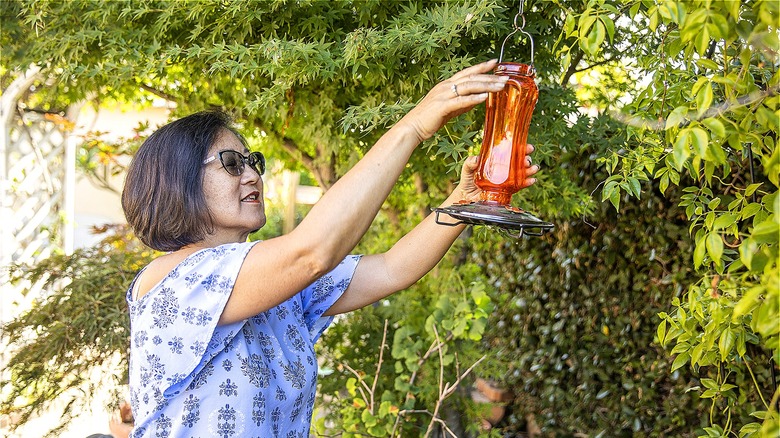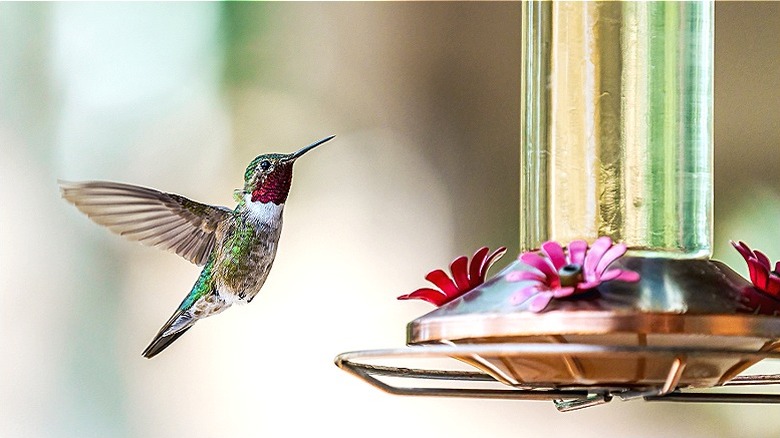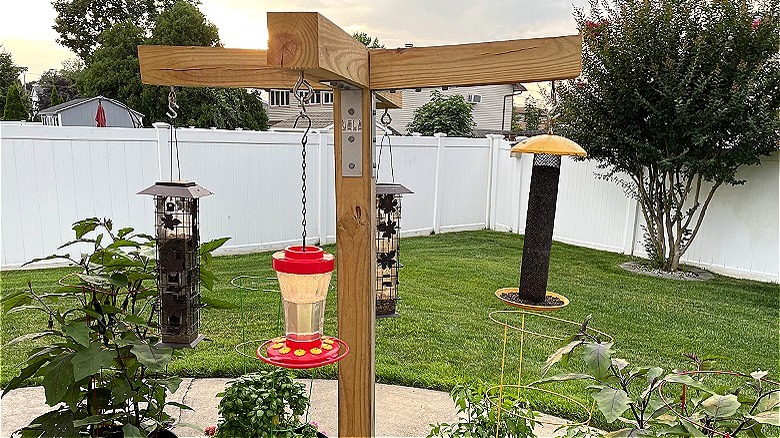Foods That Don't Belong In Your Bird Feeder During The Heat Of Summer
If you keep your bird feeder up during the summer to watch more species pass through your yard, you'll need to be careful what you're using to fill it. Increased temperatures and humidity during these months cause some foods to spoil quickly, which can make birds sick. The summer season is the time when all types of birds are raising their young, so it's important to consider what would be nutritious for the growing nestlings nearby.
Soft suet and peanut butter are commonly used in bird feeders, but steer clear of them during particularly hot weather (i.e., temperatures 90 degrees Fahrenheit and above), as they can melt and, consequently, grow mold. Further, though giving small amounts of leftovers, such as bread, is a fine occasional snack for adult birds, it can harm younger ones. When adult birds feed bread or other human food to their babies, the babies won't receive adequate nutrition, so it's best to avoid leaving these types of foods out in the summertime.
Foods to keep away from your bird feeder in hot weather
Peanut butter is a wonderful addition to a bird's diet in cooler weather as it contains a lot of protein and fat, but in the heat of summer, it can become stuck in a bird's feathers when it melts. Similarly, while suet, which is made of fat, is a good source of nutrition and can attract jays and woodpeckers, if you're feeding it in the summer, try to use a no-melt version. With this said, no matter what type of food is in your bird feeder, it's important to check for signs of mold or rancidity.
Nectar is another popular bird food, especially if you're trying to attract hummingbirds, but in hot, summer weather, you'll need to take caution. When you add more nectar than the birds can drink, it'll likely go bad and could harm the birds. It's best to only put out a little nectar at a time and refill as necessary. If you like to set out jelly or cut fruit, meanwhile, such as oranges, apples, or bananas, for your native birds, be sure to keep it fresh and throw it away when it begins to spoil.
How to care for your bird feeder in summer
Even if you're only using seed in your bird feeder, note that it's more likely to go bad in hot weather. By only filling your feeder partially, though, you'll be able to better ensure the food inside it stays fresh. Further, placing your feeder in a shady portion of your yard won't only help to prevent the seed from spoiling as quickly, but could motivate birds to stick around for longer periods of time.
If you're concerned about birds spreading disease or if food has spoiled in your bird feeder, it's a good idea to clean it. You can wash the whole feeder with hot, soapy water a few times throughout the season, or give it a quick clean with a diluted bleach-and-water spray. Make sure to let it dry before refilling it again. Finally, while feeding birds in the summertime is a wonderful experience, it's important to be mindful of what you put in your bird feeders during these hotter months and to always consider local bird nutrition.


